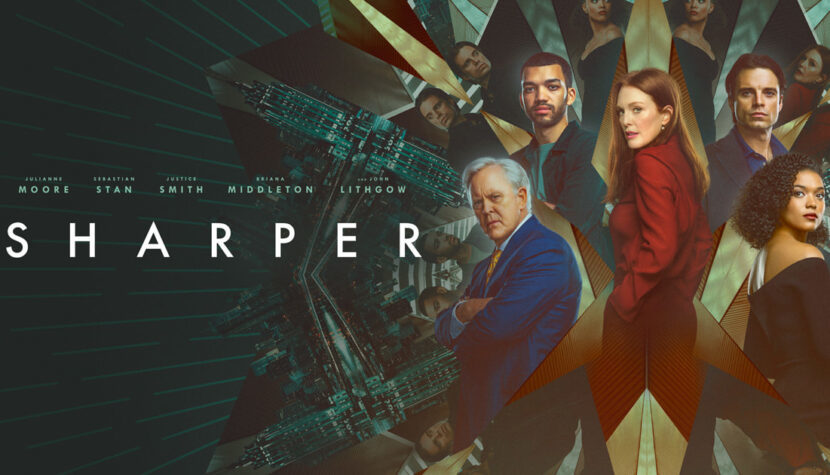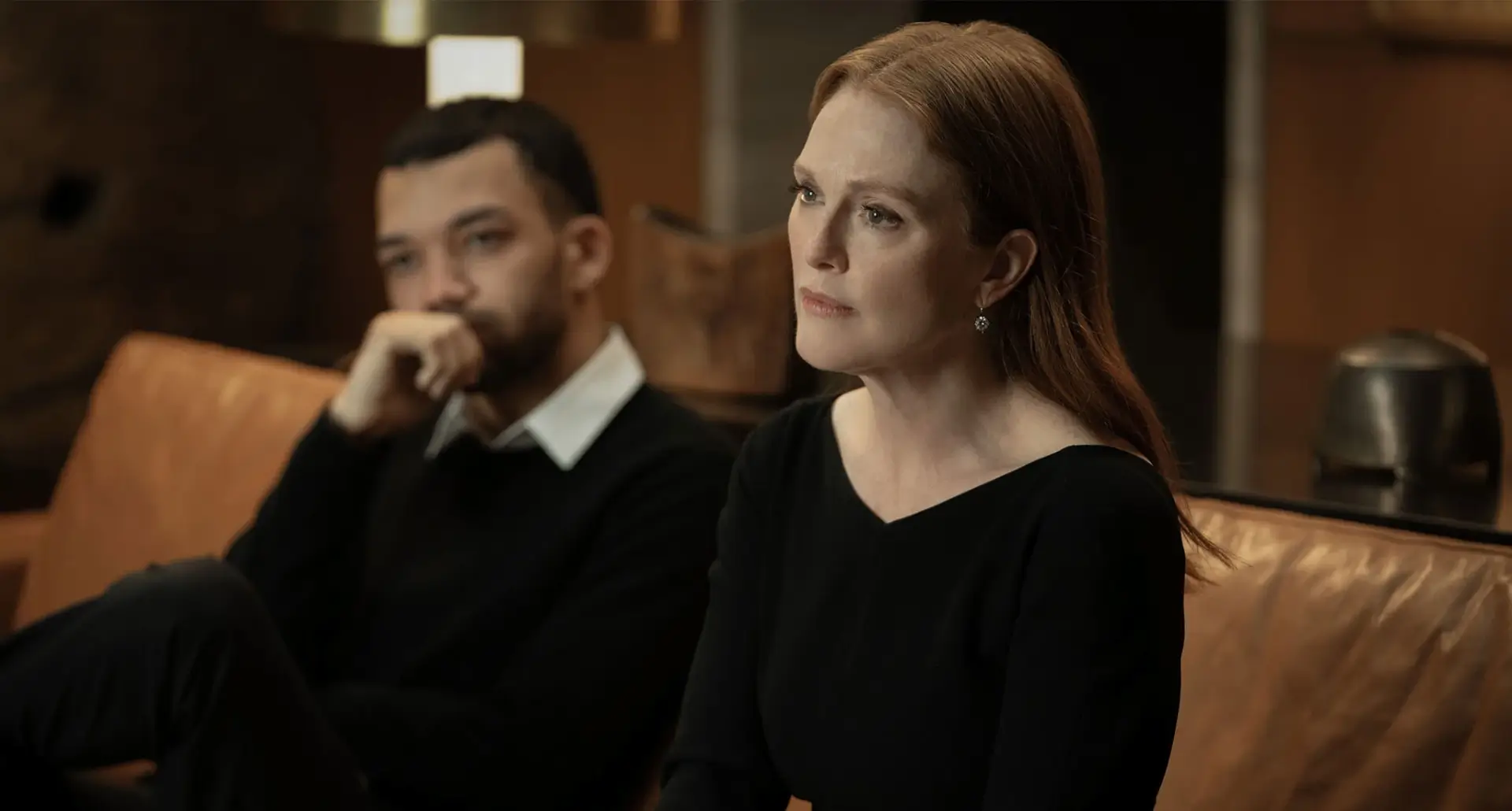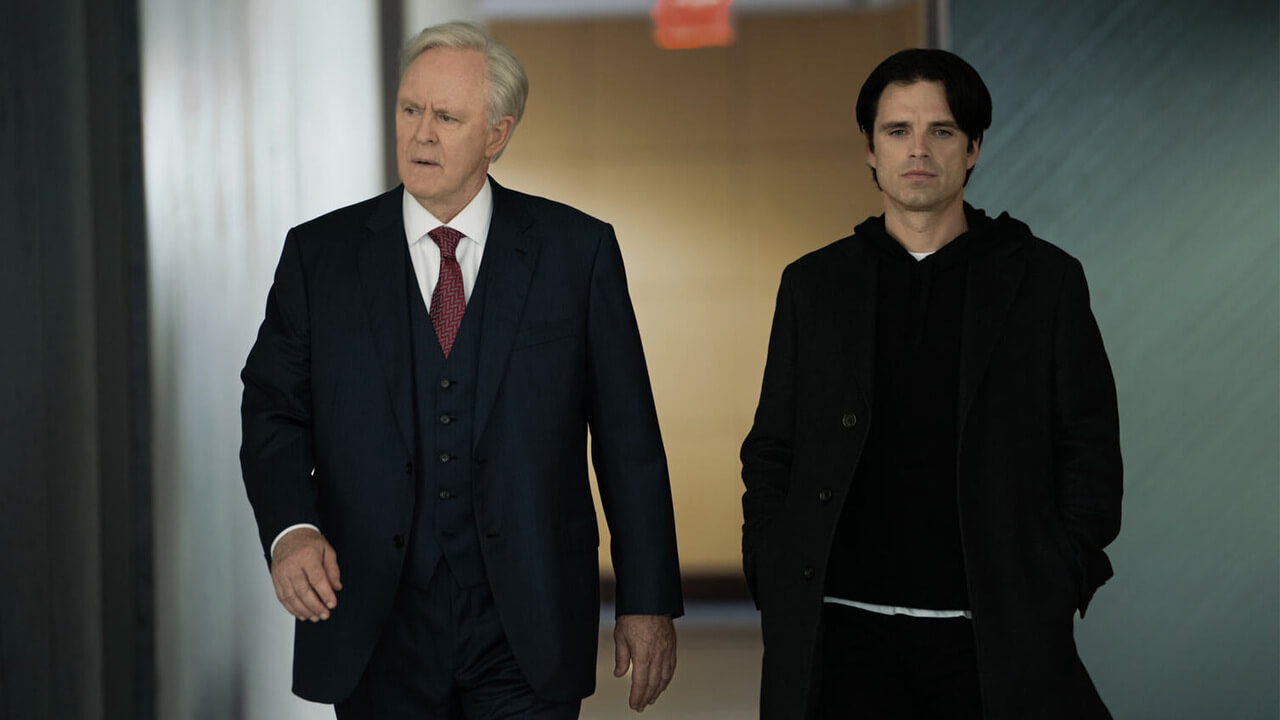SHARPER. Apple confirms that it knows how to do thrillers right

“Who is Benjamin Caron?” I thought right after watching the Sharper thriller. The director of the latest Apple TV+ original film has not yet become famous for any feature-length title, but after looking at Caron’s profile on IMDb, I already know that he is an experienced TV creator. However, even shooting a dozen episodes of series such as The Crown or Andor is not the same as directing a full-length thriller with such renowned actors as Julianne Moore, John Lithgow or Sebastian Stan in the cast. However, Benjamin Caron coped with this challenge surprisingly well.
Sharper is the story of several people entangled in an intrigue based on lies and subterfuge. Tormented Tom (Justice Smith) runs a bookstore where the attractive Sandra (Briana Middleton) ends up; she, in turn, had previously dealt with Max (Sebastian Stan), who was connected not only by a business relationship with Madeline (Julianne Moore). Brian Gatewood and Alessandro Tanaka, the screenwriters of Sharper, devote at least one chapter to each of these people, allowing viewers to learn the history of individual characters, understand their motivations and trace the path to where they are now. All these chapters intertwine in a unique way, leading to a consistent thickening of the intrigue that does not let the viewer lose interest in the story for a moment. Individual threads, although devoid of spectacular action, are so engaging that we wait impatiently for the further development of events planned for us by the screenwriters of the film.

At the most basic level, Sharper seems to be talking about a certain social consent to the exploitation of the rich – film hustlers are not interested in scamming ordinary mortals, but choose victims with wealthy wallets. And this seems to be an acceptable consensus – if you’re going to steal from someone, take from the wealthy like modern-day Robin Hoods; surely these rich men must have made a fortune by exploiting others. The problem arises, however, when this Robinhoodism is not followed by giving to the poor, and the hustlers lack noble intentions that would in any way justify immoral conduct. Sharper is a story based on heroes who cannot be rooted for – their extremely material, self-centered attitudes can only arouse disgust and what the thieves themselves avoid like the plague: compassion for the victims.
Related:
Benjamin Caron brilliantly captured the diversity of the world from which the victims of con artists come – on the one hand, the narrow alleys of a bookstore stuffed with volumes, on the other disgustingly luxurious apartments and offices of billionaires. The common denominator here is money – some have always had it, others constantly want it. And when the world does not care about the fair distribution of wealth, “sharpers” come to the fore – excellent con artists with excellent acting skills and the ability to improvise, allowing them to build the most intricately planned lie. Sharper‘s cast is also not lacking in acting skills – the underrated Sebastian Stan is calculating and charismatic, Julianne Moore shows her considerable talent for excessive and yet surprisingly adequate drama, and John Lithgow reminds us why we should wish we saw him on screen more often and in more prominent roles roles. Justice Smith also shines, who manages to build a very believable portrayal of a young man tormented by the loss of a loved one and the awareness of being a failure in the eyes of his father.

Sharper is a typical “slow burn” – a thriller that builds up slowly, methodically, to a satisfying and subversive conclusion. Everything connects beautifully and binds together in the finale, everyone gets what they deserve – isn’t that how pure crime cinema should end? Benjamin Caron delivers a truly qualitative product that, while perhaps not particularly original or refreshing for the genre, guarantees solid emotions during the screening.





